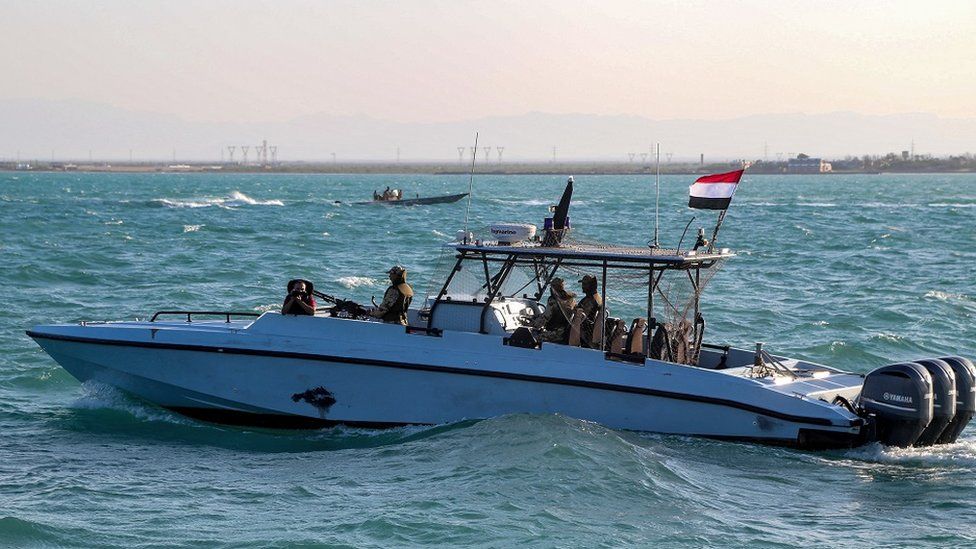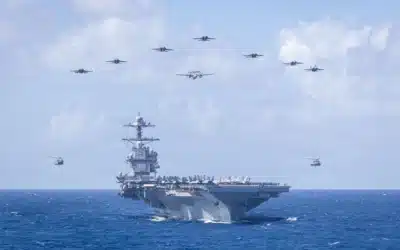The Houthis conducted two attacks on cargo ships in the Red Sea. One vessel was hit with a projectile, causing a fire, but the crew suffered no injuries. The Houthis have carried out a series of operations against ships near Yemen over the Israeli onslaught in Gaza. The increased risks to shipping have led to a major shipping company halting transit through the Red Sea.
The Houthis’ first attack on Friday targeted the Al Jasrah, a Liberian-flagged cargo ship. The projectile was fired at the ship, causing a fire. A US defense official believes the Houthis fired a drone at the Al Jasrah. There are no reports of injuries to the crew members.
Ambrey, a maritime security company, described the incident. “The projectile reportedly hit the port side of the vessel and one container fell overboard due to the impact,” Ambrey said. “The projectile caused a ‘fire on deck’ which was broadcast via” radio.
A second ship, MSC ALANYA, was warned that a small boat carrying Houthi fighters was approaching, causing the vessel to take evasive maneuvers. Ambrey said MSC ALANYA was approached by a small craft “who declared themselves to be Yemeni authorities.”
The Ambrey statement said the Yemeni authorities instructed the MSC ALANYA, “Captain you are not allowed to proceed to the Red Sea. Alter your course to the south side, now.”
The Houthis have not commented on either incident. The Houthis have attacked over ten ships since Israel began its military operations in Gaza. The Houthis say they are targeting ships with connections to Israel to pressure Israel to end military operations in Gaza.
Following the attack on the Al Jasrah, major shipping company Maersk, told AP that the firm had elected to halt shipments through the Bab al-Mandab Strait, a waterway that links the Red Sea to the Indian Ocean.
“Following the near-miss incident involving Maersk Gibraltar yesterday and yet another attack on a container vessel today, we have instructed all Maersk vessels in the area bound to pass through the Bab al-Mandeb Strait to pause their journey until further notice,” Moller-Maersk said in a statement.
Nearly 10 percent of all oil traded at sea passes through the Bab al-Mandab Strait.
Washington is demanding the Houthis stop the attacks. The US is seeking to form a multi-national coalition to police the Red Sea. Abdul-Malik al-Ajri, a Houthis spokesman, said, “There is no way of preventing the escalation except by moving towards a permanent ceasefire in the Gaza Strip.”
Last week, the US asked Israel not to attack Yemen directly. Tel Aviv appears willing to ignore Washington and has since threatened to use force against the Houthis if the attacks continue. On Tuesday, a spokesperson for Prime Minister Benjamin Netanyahu said, “Regarding the Houthi attacks on international cargo ships, these attacks pose a threat to international trade and Israel, and this threat will be dealt with force.”
For over a year, a fragile truce has been held in Yemen between the ruling Houthis and the Saudi-backed government in exile. An agreement between the two sides has been negotiated and is waiting to be implemented. However, Washington is threatening to quash the tentative deal by placing the Houthis back on the terrorist organization blacklist.
This article was originally featured at Antiwar.com and is republished with permission.

































